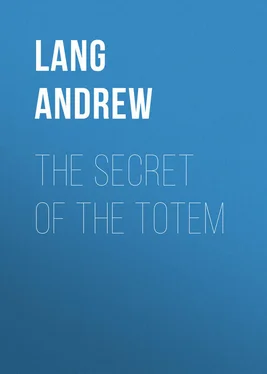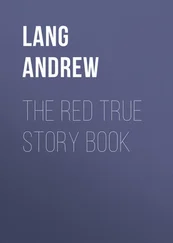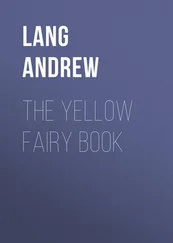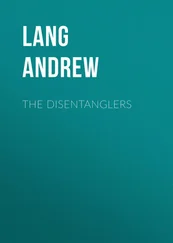Andrew Lang - The Secret of the Totem
Здесь есть возможность читать онлайн «Andrew Lang - The Secret of the Totem» — ознакомительный отрывок электронной книги совершенно бесплатно, а после прочтения отрывка купить полную версию. В некоторых случаях можно слушать аудио, скачать через торрент в формате fb2 и присутствует краткое содержание. Жанр: foreign_antique, foreign_prose, на английском языке. Описание произведения, (предисловие) а так же отзывы посетителей доступны на портале библиотеки ЛибКат.
- Название:The Secret of the Totem
- Автор:
- Жанр:
- Год:неизвестен
- ISBN:нет данных
- Рейтинг книги:4 / 5. Голосов: 1
-
Избранное:Добавить в избранное
- Отзывы:
-
Ваша оценка:
- 80
- 1
- 2
- 3
- 4
- 5
The Secret of the Totem: краткое содержание, описание и аннотация
Предлагаем к чтению аннотацию, описание, краткое содержание или предисловие (зависит от того, что написал сам автор книги «The Secret of the Totem»). Если вы не нашли необходимую информацию о книге — напишите в комментариях, мы постараемся отыскать её.
The Secret of the Totem — читать онлайн ознакомительный отрывок
Ниже представлен текст книги, разбитый по страницам. Система сохранения места последней прочитанной страницы, позволяет с удобством читать онлайн бесплатно книгу «The Secret of the Totem», без необходимости каждый раз заново искать на чём Вы остановились. Поставьте закладку, и сможете в любой момент перейти на страницу, на которой закончили чтение.
Интервал:
Закладка:
Andrew Lang
The Secret of the Totem
INTRODUCTION
This book is the natural sequel of Social Origins and Primal Law , published three years ago. In Primal Law , Mr. J. J. Atkinson sought for the origin of marriage prohibitions in the social conditions of early man, as conceived of by Mr. Darwin. Man, in the opinion of the great naturalist, was a jealous animal; the sire, in each group, kept all his female mates to himself, expelling his adolescent male offspring. From this earliest and very drastic restriction, Mr. Atkinson, using the evidence of "avoidances" between kinsfolk in savage society, deduced the various prohibitions on sexual unions. His ingenious theory has been received with some favour, where it has been understood.
Mr. Atkinson said little about totemism, and, in Social Origins , I offered a theory of the Origin of Totemism; an elaboration of the oldest of all scientific theories, that of Garcilasso de la Vega, an Inca on the maternal side, the author of the History of the Incas . Totems, he conceived, arose in the early efforts of human groups to differentiate each from the others. Mr. Max Müller and Dr. Pikler set forth the same notion, independently. The "clans," or, as I say, "groups," needed differentiation by names, such as are still used as personal names by savages, and by names easily expressed in pictographs, and easily signalled in gesture language. The origin of the group names, or sobriquets, once forgotten, the names, as usual, suggested a relation between the various name-giving objects and the groups which bore them. That relation was explained by the various myths which make the name-giving animals, plants, and other objects, mystic kinsmen, patrons, or ancestors of the groups named after them. From reflection on this mystic rapport between the objects and the human groups of the same names, arose the various superstitions and tabus, including that which prohibits unions between men and women of the same animal group-name, whether by locality or maternal descent.
Critics objected that such a "trivial accident" as a name could not be the germ, or one of the germs of a great social system. But "the name goes before everything," as the Scots used to say; and in this book I have set forth the great importance of names in early society, a fact universally acknowledged by anthropologists.
It was also objected that names given from without would never be accepted and gloried in, so I now prove that such names have often been accepted and gloried in, even when they are derisive; which, among savages, names derived from plants and animals are not; they are rather honourable appellations.
So far, I have only fortified my position. But some acute criticisms offered in Man by Mr. N. W. Thomas enabled me to detect a weak point in my system, as given in Social Origins , and so led on to what I venture to think not unimportant discoveries regarding the Australian social organisations. To Mr. Thomas's researches, which I trust he will publish in full, I am much indebted, and he kindly read part of this book in type-written MS.
I also owe much to Mrs. Langloh Parker, who generously permitted me to read, in her MS., her valuable account of the Euahlayi tribe of New South Wales, which is to be published by Messrs. Archibald Constable. No student has been so intimately acquainted as this lady with the women of an Australian tribe; while the men, in a place where they could be certain that they were free from tribal espionnage , were singularly communicative. Within its limits, Mrs. Langloh Parker's book, I think, may be reckoned almost as valuable as those of Messrs. Spencer and Gillen.
By the irony of fortune, I had no sooner seen my book in print, than Mr. J. G. Frazer's chapter on "The Beginnings of Religion and Totemism among the Australian Aborigines" ( Fortnightly Review , September 1905) came into my hands. I then discovered that, just when I thought myself to have disentangled the ravelled thread of totemism, Mr. Frazer also thought, using another metaphor, that his own "plummets had found bottom" – a very different bottom. I then wrote Chapter XI., stating my objections to his theories. Many of these, mainly objections to the hypothesis of the relative primitiveness of the Arunta "nation," had often been urged before by others. I was unaware that they had been answered, but they have obviously been deemed inadequate. Meanwhile the question as between two entirely different solutions of the old mystery remains open.
Since critics of my Social Origins often missed my meaning, I am forced to suppose that I may in like manner have misconstrued some of the opinions of others, which, as I understand them, I am obliged to contest. I have done my best to understand, and shall deeply regret any failures of interpretation on my own part.
Necessarily I was unaware that in Mr. Frazer's opinion, as set forth in his essay of September 1905, "the common assumption that inheritance of the totem through the mother always preceded inheritance of it through the father need not hold good." I have throughout argued on that assumption, which I understood to be held by Mr. Frazer, as well as by Mr. Taylor, Mr. Howitt, and most authorities. If it be correct, as I still think it is, it cannot but be fatal to the Arunta claim to primitiveness. But Arunta society is, in many points, so obviously highly organised, and so confessedly advanced, that I am quite unable to accept this tribe as an example of the most archaic state of affairs extant. If I am wrong, much of my argument is shaken, and of this it is necessary to warn the reader. But a tribe really must be highly advanced in organisation, if it can afford to meet and devote four months to ceremonials, as it did, in a region said to be relatively deficient in natural supplies.
In this book I have been able to use the copious materials of Mr. Howitt and Messrs. Spencer and Gillen in their two recent works. It seems arrogant to differ from some of the speculative opinions of these distinguished observers, but "we must go where the logos leads us."
I end by thanking Mr. H. J. Ford for his design of Eagle Hawk and Crow, heading the totems in their phratries, and betrothing two interesting young human members of these divisions.
CHAPTER I
ORIGIN OF TOTEMISM
The making of the local tribe of savagery – Earliest known stage of society – Result of complex processes – Elaborate tribal rules – Laws altered deliberately: sometimes borrowed – Existing legislative methods of savages not primitive – The tribe a gradual conquest of culture – The tribe a combination of small pre-tribal kinships – History of progress towards the tribe traceable in surviving institutions – From passion to Law – Rudeness of native culture in Australia – Varieties of social organisation there – I. Tribes with two phratries, totems, female descent – Tribes of this organisation differ as to ceremonies and beliefs – Some beliefs tend to polytheism: others towards monotheism – Some tribes of pristine organisation have totemic magic and pirrauru : others have not – The more northern tribes of pristine organisation share the ceremonies and beliefs of central tribes: not so the south-eastern tribes – Second form (a) of social organisation has male descent – Second form (b) has female descent plus "matrimonial classes" – Account of these – Eight-class system – The Arunta nation – Their peculiar form of belief in reincarnation — Churinga nanja – Recapitulation – The Euahlayi tribe.
The question of the origin of totemism has more than the merely curious or antiquarian interest of an historic or prehistoric mystery. In the course of the inquiry we may be able to discern and discriminate the relative contributions of unreflecting passion, on one hand, and of deliberate reason, on the other, to the structure of the earliest extant form of human society. That form is the savage local tribe, as known to us in America and in Australia.
Читать дальшеИнтервал:
Закладка:
Похожие книги на «The Secret of the Totem»
Представляем Вашему вниманию похожие книги на «The Secret of the Totem» списком для выбора. Мы отобрали схожую по названию и смыслу литературу в надежде предоставить читателям больше вариантов отыскать новые, интересные, ещё непрочитанные произведения.
Обсуждение, отзывы о книге «The Secret of the Totem» и просто собственные мнения читателей. Оставьте ваши комментарии, напишите, что Вы думаете о произведении, его смысле или главных героях. Укажите что конкретно понравилось, а что нет, и почему Вы так считаете.












